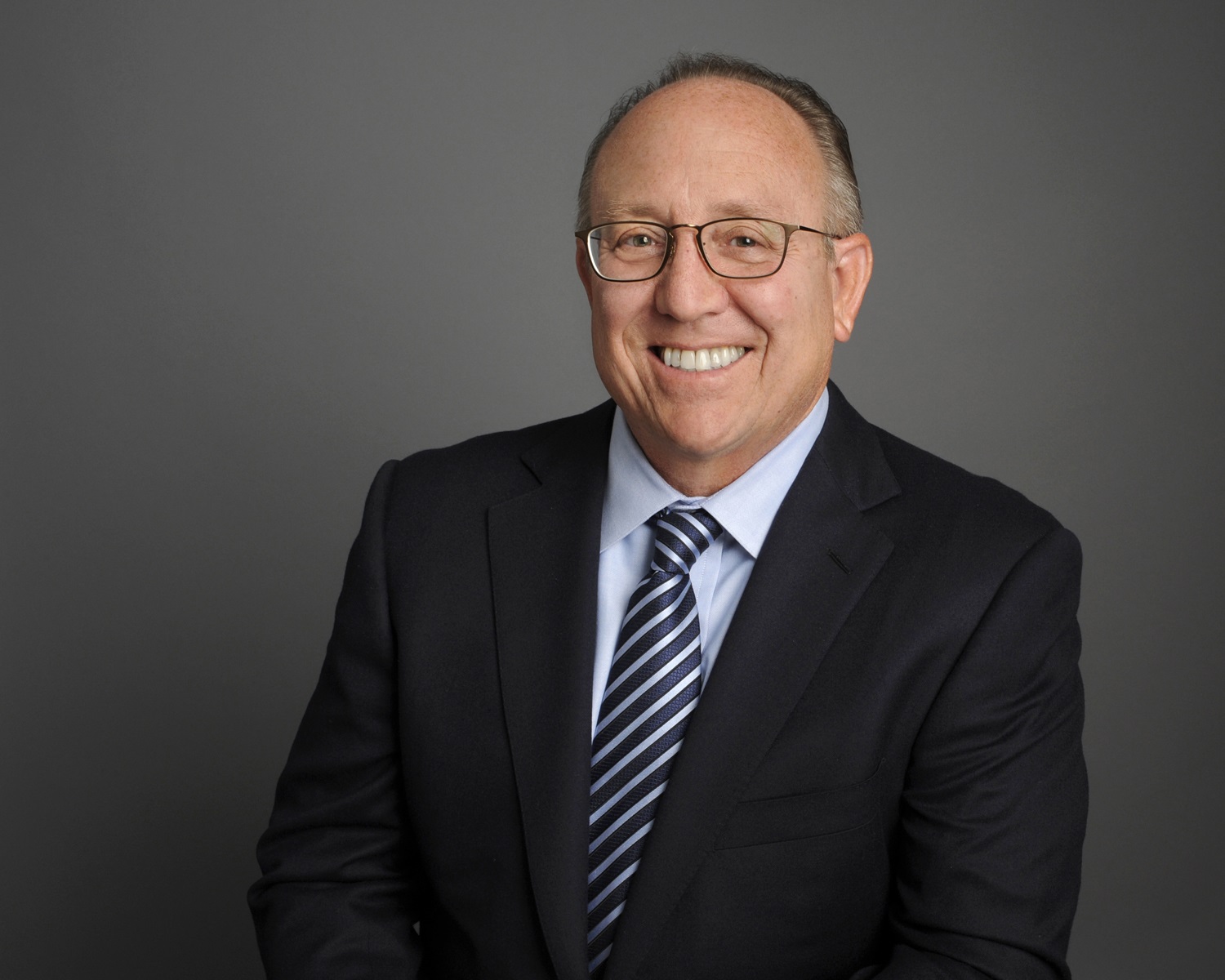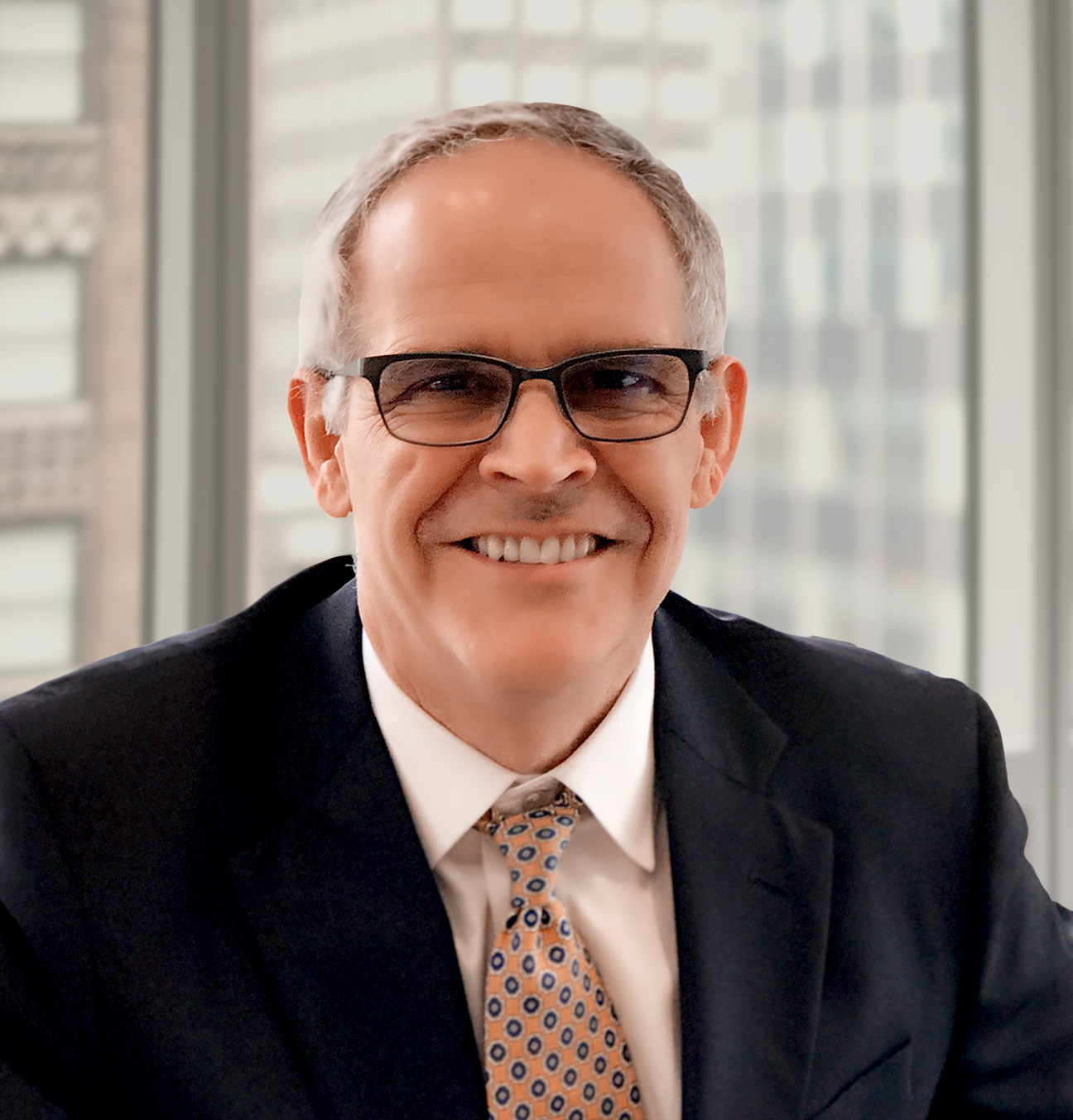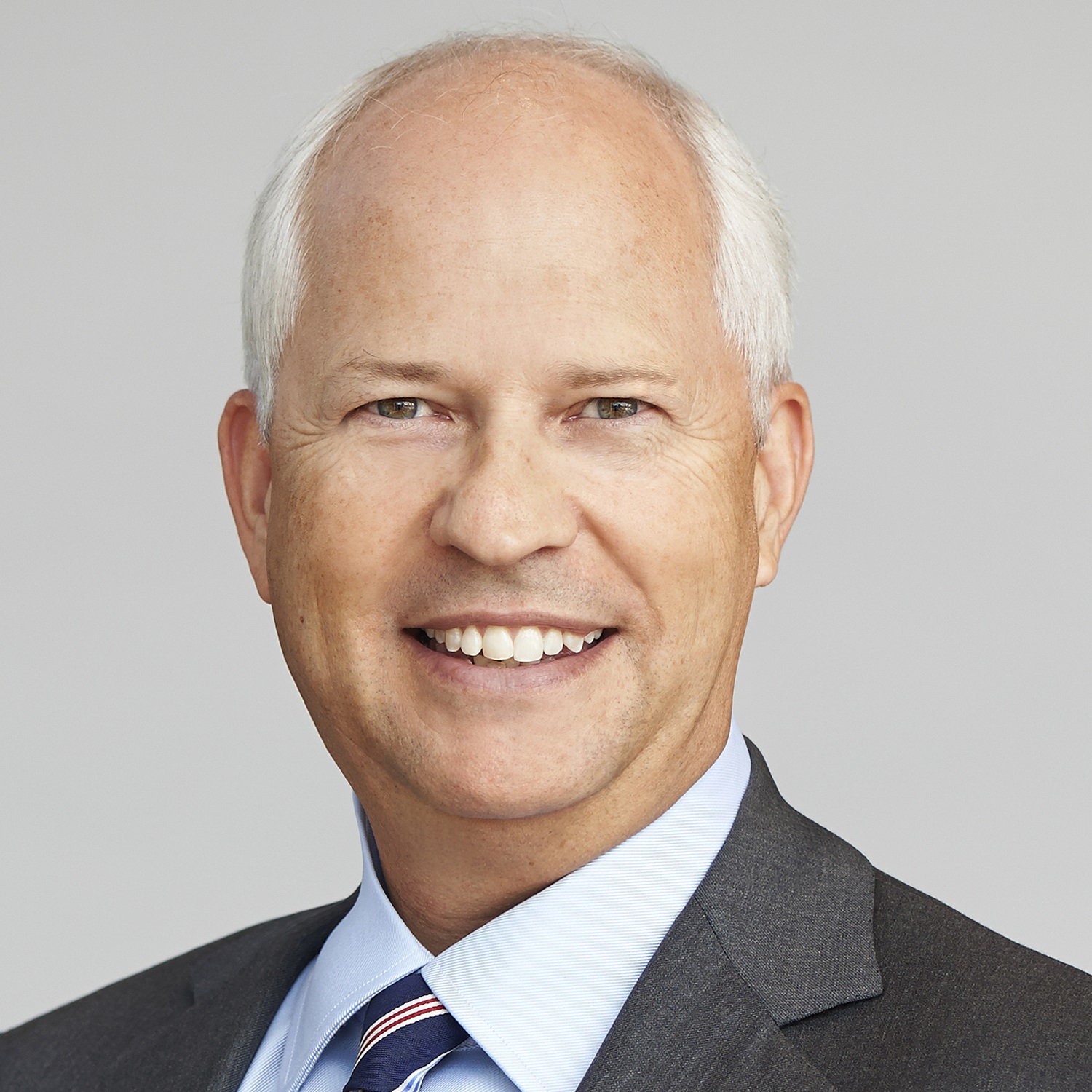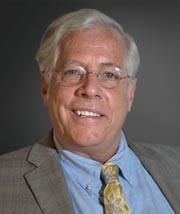
Don Schreiber is the Founder, Chief Executive Officer and Co-Portfolio Manager at WBI Investments. He is also the co-author of All About Dividend Investing, published by McGraw-Hill.
“Chubb (NYSE:CB) is a midcap stock. It’s a Tiffany insurance company. They’re one of the insurance companies that higher net worth clients tend to use more frequently. They have very good profit and earnings because they’re essentially a Cadillac provider, and they charge for it. So they’re a company that has pretty strong growth prospects and financials that should do well even in a challenging market environment.”
The exclusive interview with the Wall Street Transcript details this portfolio pick as well as many others in a variety of industry sectors.
Read the rest of the exclusive interview in the Wall Street Transcript.

Peter H. Havens is the Chairman and Founder of Baldwin Management. In a recent exclusive interview with the Wall Street Transcript, he details his investment criteria for picking the best large multinational oil stock among Royal Dutch Shell (ADR), Exxon Mobil (NYSE:XOM) or Chevron (NYSE:CVX).
“Royal Dutch, maybe at a less-than-opportune time, made a very big acquisition in buying BG Group, which levered up their balance sheet. Now, according to our analysis, we believe that the dividend is safe, especially when oil is around $50 a barrel. When it was down around $27 a barrel, there was probably good reason to scratch one’s head, and think more and more about the safety of that dividend. But with the BG acquisition, Shell recast itself, dramatically increasing its exposure to the LNG business, which we find very attractive…And so you’re getting an attractive major international oil company at a pretty cheap price. Certainly, their yield is a lot higher than Exxon Mobil’s (NYSE:XOM) or Chevron’s (NYSE:CVX).”
Baldwin Management reveals several other recent portfolio picks and demonstrates the ability for identifying superior stock selection in a chaotic trading environment.
Read the rest of the exclusive interview on the Wall Street Transcript.

Mark Travis is the CEO, President and a Co-Founder of Intrepid Capital Management. In an exclusive interview with the Wall Street Transcript he outlines his investment philosophy:
“We are looking to see how quickly the free cash flows of an enterprise can get back to us as an investor, whether that’s in the equity, in terms of buyback or a dividend, and in terms of debt-repayment ability in the fixed income market.”
One of the many stocks Mr. Travis outlines in his interview is the software services company Syntel (NASDAQ:SYNT).
“Syntel (NASDAQ:SYNT)…an IT outsourcing firm predominantly with Indian work force. They’ve got some customer concentration. Their top-three clients are American Express (NYSE:AXP), State Street (NYSE:STT) and FedEx (NYSE:FDX). This company is very embedded in financial services and health care, and they have very attractive margins. It trades for 6.3 times normalized operating profit and nine times expected free cash flow. The shares are in the high teens. We think they’re worth in the mid-20s.”
Read the rest of the exclusive interview on the Wall Street Transcript.


Ingrid Yin, Ph.D., and Nels Wangensteen are the co-founders, Managing Partners and Portfolio Managers of MayTech Global Investments. In their exclusive interview with the Wall Street Transcript, these two top performers details their new fund focusing on the best technology global growth stocks.
One of their top picks is Intuitive Surgical (NASDAQ:ISRG):
“We see strong growth ahead for Intuitive Surgery for many years. And this also sits on the concept of having a company with a platform, not just one product.” Dr. Yin details her analysis behind this investment as well as many others including Tencent (HKG:0700), Amazon (NASDAQ:AMZN), Ctrip (NASDAQ:CTRP), and other high growth technology stocks.
Read the rest of the exclusive interview on the Wall Street Transcript.

Paul Ehrlichman is the Head of Global Value at ClearBridge Investments and co-manages numerous global and international strategies. His exclusive interview with the Wall Street Transcript details his iconoclastic stock picking ability.
“We really look for that very rare combination — and we’ll talk about it in a second and show how rare it is — but that combination of very strong growth potential but completely not priced in. So we’re looking for deep undervaluation in situations that have substantial growth potential, and it produces what we call the gap, the gap between implied growth and expected growth. So for example, we have a value portfolio selling for about 12 or 13 times earnings, but it also has 20% earnings growth potential…”
One good example out of the many discussed by Mr. Ehrlichman in the interview is the financial firm Standard Life (LON:SL):
“…we like firms like Standard Life (LON:SL), merging with Aberdeen. So they have a lot of cost cutting. They’ve increased their scale dramatically. It’s selling at about 12 times, trough profits maybe eight or nine times sustainable profitability. They are a beneficiary of the emerging-market recovery because of lot of their mandates are emerging-market-based, and they also pay a 5% dividend yield.”
Read the rest of the exclusive interview on the Wall Street Transcript.

Fla Lewis III, the Principal of Weybosset Research & Management, reveals his top stock picks for the Wall Street Transcript in this exclusive interview. One of his top picks? Farmer Mac, the Federal Agricultural Mortgage Corporation (NYSE:AGM):
“TWST: Maybe we could talk a little bit about Farmer Mac and what investors should know about it.
Mr. Lewis: Well, Farmer Mac is to the agricultural sector what Fannie Mae (OTCMKTS:FNMA) and Freddie Mac (OTCMKTS:FMCC) were to the housing sector. That is to say, Farmer Mac was established in the late 1980s to provide liquidity for loans to farmers and ranchers in the same sense that Freddie Mac and Fannie Mae were set up to provide liquidity for the home mortgage market. Unlike Freddie Mac and Fannie Mae, Farmer Mac did not go down into virtual bankruptcy in 2008 and, in fact, has kind of led a very sleepy existence, not doing much of anything until new management took over a year or two ago…”
Mr. Lewis goes on to highlight several other current top picks in this interview, part of the recent Investing Strategies Report. Another interesting pick is the New York Times:
“…the New York Times (NYSE:NYT) is attempting a real change in their business, dramatic change, not to be the company that delivers newspapers to your door every day and a big fat one on Sunday — that continues but is declining and will continue to decline — but attempting to become a global news provider online through a subscription model. That’s a tough road to hoe because it is extremely competitive out there and hard to make money, but The New York Times has a special name. There are very few national or even global newspapers with The New York Times’ credibility. The Wall Street Journal comes to mind…”
Read the rest of the exclusive interview on the Wall Street Transcript.

Is the Bull Market Over?
A major concern of investors is the age of this bull market. It’s been eight years since the famous bottom at 666 in the S&P 500 on Friday afternoon on March 6, 2009.
Is it time to sell?
We asked Jeffrey Auxier, named one of the top-10 brokers in the country by Money, and President of Auxier Asset Management LLC and Founder of the Auxier Focus Fund.
Mr. Auxier points out: “I think if people understand that a dollar invested in 1965 requires almost $7.50 today, they would not have a penny invested in fixed income at today’s price and yield levels.”
Mr. Auxier’s exclusive interview with The Wall Street Transcript reveals his current picks. One is Citigroup (NYSE:C):
“The stock is down from over $500 in 2007. I mean, it’s still at maybe $60, and you’ve got Michael Corbat, he’s actually a really good banker, and you’re looking at potentially $70 billion being returned with the new rollback in regulations to shareholders in these bigger banks.”
Auxier Asset also identifies two biotech stocks as unusual values:
“…we like Amgen (NASDAQ: AMGN), the number-one biotech company in the world, at 12 times earnings, $38 billion in cash, $6 billion in free cash flow. When you can buy leading biotech businesses for that low valuation, it has been a historically attractive entry level. Biogen (NASDAQ:BIIB) is another industry leader, research-focused, that’s trading around 12 times earnings and, again, with the leading position in MS and Alzheimer’s.”
This week we also interviewed a money manager who beats the market both long and short. Adam J. Patinkin, CFA, is the Managing Partner and Portfolio Manager of David Capital Partners, LLC, a Chicago-based investment firm that employs a value-oriented long/short equity investment strategy.
This top performing portfolio manager is mathematically indifferent to the age of the bull market:
“…due to our differentiated investment program for both longs and shorts, our portfolio has generally been uncorrelated. Since inception, the portfolio has an R-Squared to the S&P 500 Index of 0.11, an R-Squared to the Russell 2000 Index of 0.08, and an R-Squared to the HFRX Global Hedge Fund Index of 0.06.”
On the short side, Mr. Patinkin reveals, “One of our top themes at the moment is to be short U.S. hotel REITs. If you look at the U.S. hotel sector, demand for hotel rooms has consistently grown about 1.7% per year. Whenever supply growth goes above 2%, it should set alarm bells ringing that supply growth is now outpacing demand growth. In 2017, supply growth will be above 2%. In 2018, supply growth will be nearly 3%. We think the alarm bells are ringing.”
We also interview the highly regarded asset manager Bryan J. Spratt, CFA, a Portfolio Manager at Miller/Howard Investments, Inc. Mr Spratt explained his infrastructure focus:
“At its core, infrastructure can be defined as the essential services and foundational assets in society that make up the backbone of the economy.”
One of his top picks is MDU Resources (NYSE:MDU), a Rockies-based utility that also has construction services and construction materials like gravel pits, asphalt and cement.
These three money managers reveal a common theme from this week’s group of top portfolio managers — that it’s always a good time to invest your money wisely.
Chairman Peter Havens of Baldwin Management, LLC is very optimistic about Enterprise Products Partners L.P. (NYSE:EPD) because its chemical plants will be coming online in the near future.
The main thesis behind our optimism about that company and that stock are new chemical plants that are coming online in 2017, 2018 and 2019. And so the date of those chemical plants coming online is just getting closer and closer. And so we’re as enthusiastic as we have ever been with regard to Enterprise Products.
Havens further explains the anticipation behind the chemical plants and how it is helping the company.
Well, primarily because of the main feedstock for these chemical plants, for the products that they produce can be derived from natural gas, and natural gas is very cheap. As a consequence, chemical companies, whether they be American chemical companies, or in particular, some foreign chemical companies, like Shell (NYSE:RDS.A), are coming to the United States and taking advantage of these very cheap feedstocks and using it to produce higher-margin end products. That’s why we continue to be enthusiastic.
Managing Partner and Portfolio Manager Nels Wangensteen of MayTech Global Investments says Intuitive Surgical, Inc. (NASDAQ:ISRG) is seeing success in multiple areas of its platform.
Intuitive Surgical is a health care technology company. The company is the technology leader in making robotic systems to help with surgeries. The penetration of their instruments has taken up around the world in many different categories. It started with urology and gynecology procedures, and then people started to use it for hernia and general surgeries. Hospitals, doctors and patients are all motivated to use this machine because it makes procedures minimally invasive, so patients can get out of the hospital very quickly compared with traditional surgeries.
You will see they are not only selling more instruments but also growing procedure volumes fast globally. We’re seeing this not only in the U.S. but also in Japan, Korea, China and in Europe. We see strong growth ahead for Intuitive Surgery for many years. And this also sits on the concept of having a company with a platform, not just one product.
Chief Operating Officer Christopher Trompeter, CFA, of Tradition Capital Management, says Lowe’s Companies, Inc. (NYSE:LOW) is significantly undervalued right now, as the company is set up to benefit from an improving housing cycle.
The company would benefit from continued improvement in the housing market. Certainly, the fact that home prices have been increasing over the last few years as well as greater demand for home ownership has encouraged homeowners to either invest in their existing properties, or if they purchase a new property, there’s always generally investment on the part of the homeowner once the purchase is completed.
[…]
Although there is some cyclicality associated with the demand for housing, but we believe that we’re in the middle innings of what we expect is going to be a reasonably long and improving housing cycle. So we look at that as a tailwind for Lowe’s. There are opportunities for Lowe’s to drive more business through their existing stores. They also offer online ordering and pickup as well. And there is room for them to also close the margin gap between Lowe’s and Home Depot.